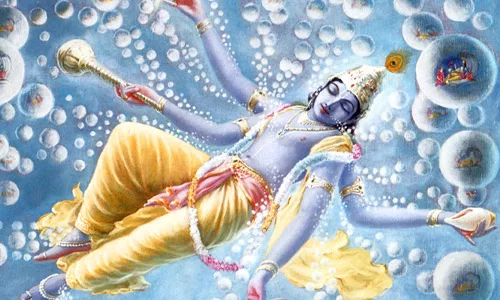 “I am the ability in man,” Sri Krishna seamlessly mentions. This statement holds profound meaning if one understands the potential of every living being.
“I am the ability in man,” Sri Krishna seamlessly mentions. This statement holds profound meaning if one understands the potential of every living being.
It is natural for individuals to question their own identity, ability, and capacity, leading them to conclude that they are good for nothing. Unfortunately, such claims are often endorsed by religious statements, such as Christianity’s core belief that individuals are constitutionally sinners, and God sent his son to deliver and save them.
On the other hand, Sri Krishna hints at the living entity’s original potential, and realizing even a fraction of it is experiencing Sri Krishna. This verse gives one limitless hope, self-respect, and humility, along with gratitude for experiencing or being with Sri Krishna.
Therefore, Sanatana dharma believes in one’s resourcefulness, regardless of their external covering. The concept of purushartha becomes significant, as self-endeavor has the power to give self-realization.
Yoga, according to Bhagavatam, is nothing but dharma and kriya, where kriya is action and endeavor, and dharma is judiciousness. The highest judiciousness is exploring our resources with purushartha, which results in phenomenal experiences of transcendence in our work itself.
Sanatana dharma insists on experiencing divinity in our daily karma.
Sri Krishna says in the Gita that all works are born out of Vedas, and Vedas are born out of Brahman, therefore, all work has divinity at its core.
The beauty of the dharma tradition is the resources provided by nature to each of us. The grace of God is nothing but realizing this understanding through purushartha and knowledge.
Arjuna was confident in his resources and ability, which is why when Sri Krishna asked him whether he wanted his army or himself, he chose Krishna. Arjuna knew that his ability was also Sri Krishna, and he was surrounded by Sri Krishna in his own actions and in person. Sri Krishna was his guide, and Arjuna was the performer.
– Govinda Das



